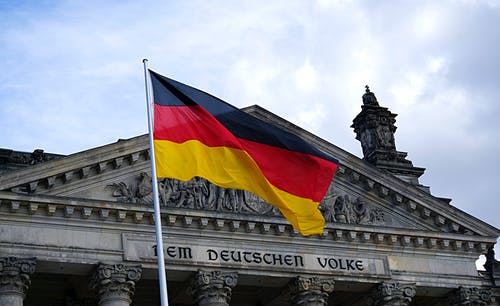You are here
Home 🌿 Marijuana Business News 🌿 As Germany legalizes cannabis, beware of 'premature' sales projections 🌿As Germany legalizes cannabis, beware of 'premature' sales projections

It's too soon for Canadian cannabis producers to put dollar figures on European markets on the cusp of legalizing recreational pot, according to an industry executive with experience on both sides of the Atlantic.
Deepak Anand is chief executive officer of Materia, a London-based processor and distributor of medical cannabis and CBD wellness products. The company spans the UK, Germany, Denmark, and Malta. Prior to shifting focus to Europe, Anand established himself as a popular commentator on the industry in Canada, and served as vice-president of a consulting firm acquired by Deloitte.
"There is no denying that recreational legalization in Europe is going to have a significant impact on the entire continent," he said in an interview. "It's going to result in generating revenue. How much, how big, and how soon are entirely different questions."
With a population of more than 83 million, German lawmakers could establish one of the largest recreational cannabis markets in the world. Canopy Growth (WEED.TO)(CGC), Aurora Cannabis (ACB.TO) (ACB), and Tilray (TLRY) are among the Canadian companies supplying the country's four-year-old medical market.
The European arms of Canada's largest licensed producers have expanded and contracted since arriving on the continent. In recent years, financial headwinds have forced executives to weigh the benefit of selling higher-margin medical products in Europe, against spending at home in Canada, and investing in anticipation of U.S. federal legalization.
According to the London-based research firm Prohibition Partners, the European cannabis market is expected to be worth 3.2 billion euros ($4.5 billion) by 2025.
"Europe has so much potential," Tilray CEO Irwin Simon told analysts on an Oct. 7 post-earnings conference call. "I think you might see legalization in Germany before the U.S."
Simon reiterated his view that the European Union "represents a $1 billion opportunity" for his company in an Oct. 26 news release announcing that Luxembourg's Ministry of Health has selected the company as a medical cannabis supplier.
Aurora and fellow Edmonton-based pot firm Village Farms International (VFF.TO)(VFF.TO) are establishing footholds in the European nation most often associated with cannabis - the Netherlands.
The Dutch government has selected 10 cultivators by lottery to grow and distribute cannabis for recreational use as part of its plan to establish a legal supply chain on a trial basis for 80 of the roughly 600 dispensaries in the country, known as coffeeshops. The Controlled Cannabis Supply Chain Experiment, which notably excludes the capital city of Amsterdam, is set to last a minimum of four years, during which officials will evaluate if the rules should be expanded nationally.
Earlier this month, Aurora said it agreed to buy a "significant equity stake" in Growery B.V., a Netherlands-based company that won a licence to participate in the experiment. Aurora did not disclose the size of the investment. Village Farms said in September that it agreed to pay 3.95 million euros for an 80 per cent stake in Netherlands-based Leli Holland B.V. - another of the 10 winners.
"It's a massive, massive market," Aurora CEO Miguel Martin told Yahoo Finance Canada in a recent interview. "If you look at where the market is trending, and you look at that program being opened up to all 600 [coffeeshops], you get to about a $2.8 billion piece of business, which is about the same as Canada."
Sales of legal recreational cannabis in Canada totalled $2.6 billion in 2020, according to Statistics Canada.
"Comparing it [the Netherlands] to Canada is probably not the wrong thing," Anand said. "But we don't know what this might look like once the program is over and done with. Nothing is set in stone."
"Trying to have sizeable forecasts on any emerging market is a little bit premature in my opinion," he added. "Mistakes have been made with respect to the size of markets. I think that these promises have resulted in investors being skeptical when they hear of new programs coming online. Historically, have over-promises been made? Absolutely."
Martin says he sees little risk of the Netherlands experiment having an unfavourable outcome for Aurora. He expects the company to realize its first recreational pot revenue from the Netherlands in 2023.
"The Dutch love their cannabis," he said. "With all respect due to our home country of Canada, this is a country that has embraced cannabis for five decades."
420 Intel is Your Source for Marijuana News
420 Intel Canada is your leading news source for the Canadian cannabis industry. Get the latest updates on Canadian cannabis stocks and developments on how Canada continues to be a major player in the worldwide recreational and medical cannabis industry.
420 Intel Canada is the Canadian Industry news outlet that will keep you updated on how these Canadian developments in recreational and medical marijuana will impact the country and the world. Our commitment is to bring you the most important cannabis news stories from across Canada every day of the week.
Marijuana industry news is a constant endeavor with new developments each day. For marijuana news across the True North, 420 Intel Canada promises to bring you quality, Canadian, cannabis industry news.
You can get 420 Intel news delivered directly to your inbox by signing up for our daily marijuana news, ensuring you’re always kept up to date on the ever-changing cannabis industry. To stay even better informed about marijuana legalization news follow us on Twitter, Facebook and LinkedIn.




